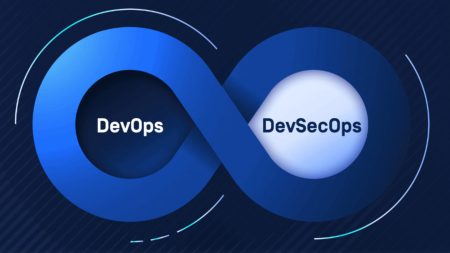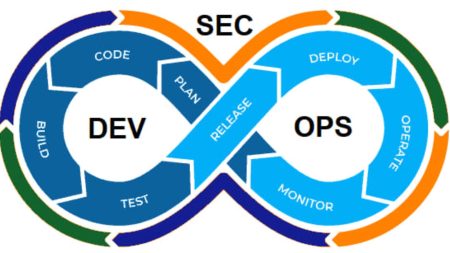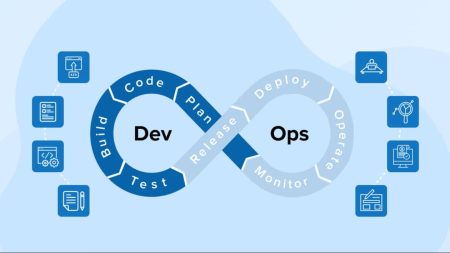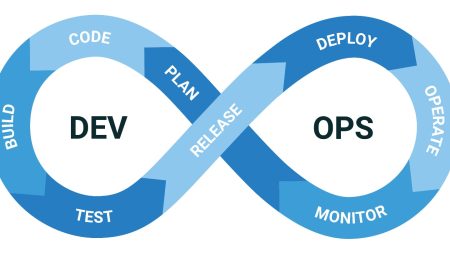Today, digital transformation is a top priority for businesses worldwide. The need for seamless collaboration, swift product delivery, and efficient IT operations has never been greater. Here DevOps – a set of practices that combines software development (Dev) and IT operations (Ops) – comes into play. Navigating the tech seas today without DevOps feels like sailing without a compass. But what if your in-house team lacks the chops or bandwidth to deliver? Enter DevOps outsourcing, a strategy as transformative as it is practical. Let’s crack open this topic like a piñata and see what goodies fall out.
The DevOps Dilemma
Modern businesses run on digital systems. Websites, apps, cloud platforms – all these gears must hum in harmony. But building and maintaining this orchestra isn’t child’s play. A misstep can leave you limping in the race. Hiring an internal DevOps team sounds tempting. Yet, it’s a Herculean task to find, train, and retain experts. Here’s where the plot thickens: outsourcing offers a shortcut to expertise without the headache of recruitment. It’s like borrowing a champion sprinter instead of training one from scratch.
Why Outsource DevOps Services?
The benefits of outsourced DevOps are as clear as a cloudless sky. Let’s break it down:
Expertise That Runs Deep
DevOps outsourcing companies are stacked with seasoned pros. These folks live and breathe automation, continuous integration, and seamless deployment. Want to implement Kubernetes or terraform your cloud architecture? You’re in good hands.
Financial Breathers
Building an internal team costs more than just salaries. Training, infrastructure, and benefits add up faster than a Starbucks tab. Outsourcing trims fat from your budget, giving you room to invest elsewhere. According to a Deloitte survey, 59% of companies outsource to reduce costs. If the numbers don’t lie, then the dollar savings make perfect sense.
Focus on Your Core Game
Picture this: Your team can focus on building your product, not tinkering with deployment pipelines. DevOps outsourcing companies handle the nitty-gritty so you can keep your eyes on the prize.
How to Outsource DevOps Services Without Hiccups?
Now, before you toss your DevOps needs to the nearest vendor, pause. Outsourcing is no one-size-fits-all solution. Here’s how you can get it right.
Know Thy Needs
What do you need to achieve? Faster delivery? Greater scalability? Jot down your goals like a grocery list. It’s the first step toward aligning with the right DevOps outsourcing services.
Do a Sherlock
Don’t pick the first DevOps outsourcing company you stumble upon. Research, read reviews, and sniff around for referrals. Dive into portfolios like a curious kid in a candy store.
Set Clear Boundaries
Partnerships thrive on clarity. Spell out expectations, timelines, and deliverables. Vague plans lead to messy outcomes. And messy outcomes cost more than you bargained for.
The Anatomy of a Solid DevOps Outsourcing Company
Not all vendors are created equal. The right DevOps outsourcing company should tick a few critical boxes.
- Expertise: Can they juggle multiple tools?
- Adaptability: Can they scale up or down as needed?
- Communication Skills: Do they keep you in the loop or leave you in the dark?
Common Pitfalls in DevOps Outsourcing
Every rose has its thorns, and every outsourcing venture has risks. Avoid these blunders:
- Chasing the cheapest option. You get what you pay for. Picking the bargain bin might mean sacrificing quality. And in DevOps, poor quality is like a leaky bucket – it costs you more in the long run.
- Micromanaging. You hired experts; let them work their magic. Breathing down their necks only stifles creativity and progress.
- Ignoring cultural fit. A mismatch in work culture can spell disaster. It’s like putting a square peg in a round hole – it just doesn’t work.
Real-Life Wins with Outsourced DevOps
Still on the fence? Let’s peek at some examples:
- Spotify’s Rapid Scale – Spotify leveraged DevOps principles to roll out updates faster than a DJ switches tracks. By outsourcing specific aspects, they scaled globally without hiccups.
- NASA’s Efficiency Boost – Even rocket scientists need help! NASA outsourced certain DevOps functions to streamline development, reduce costs, and hit mission-critical timelines.
Outsourced DevOps Trends to Watch
The outsourcing landscape isn’t static. Keep an eye on these trends:
AI-Powered DevOps
AI and machine learning are revolutionizing workflows. DevOps outsourcing companies increasingly use AI to predict failures and optimize performance.
Cloud-Centric Approaches
With 94% of enterprises using cloud services, outsourcing DevOps for cloud optimization is more relevant than ever.
Security as a Priority
With cyber threats looming, security has moved from the back seat to the driver’s seat. Modern vendors embed robust security into every phase of the pipeline.
DevOps outsourcing isn’t just a choice – it’s often the smartest move a business can make. It’s like adding a turbocharger to your car; you’ll go farther, faster, with less fuel. But remember, success hinges on choosing the right partner. Outsource DevOps services thoughtfully, and you’ll reap the rewards. Ignore the details, and you may find yourself in deeper waters than before. In the end, DevOps outsourcing is more than a solution – it’s a strategy. Play it right, and your business will hit high notes that even Mozart would envy.
Read also interesting article about DevOps security.











